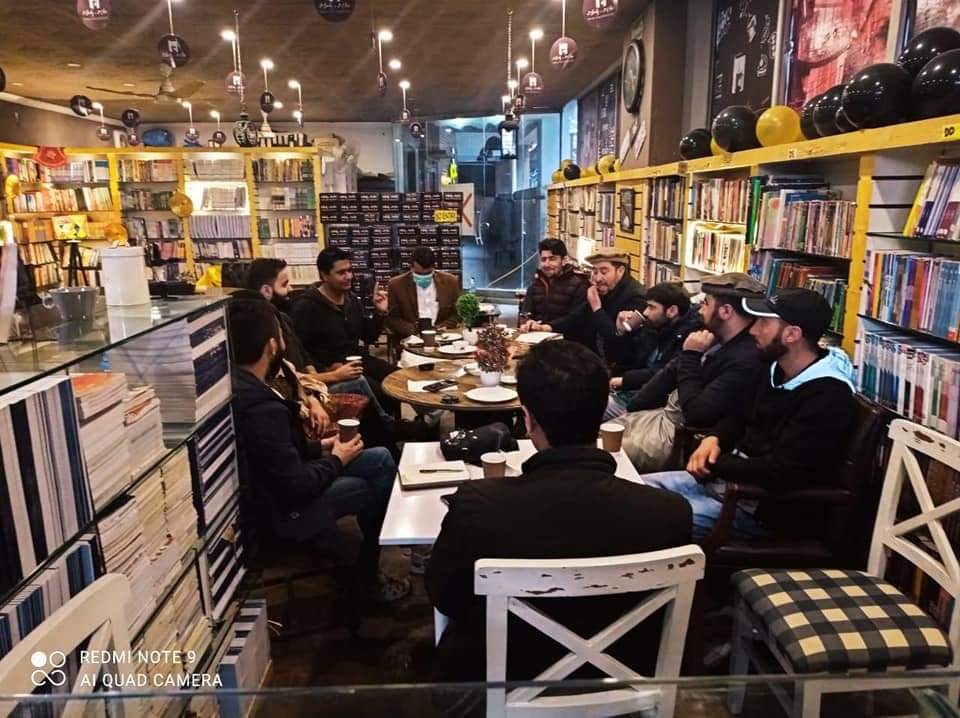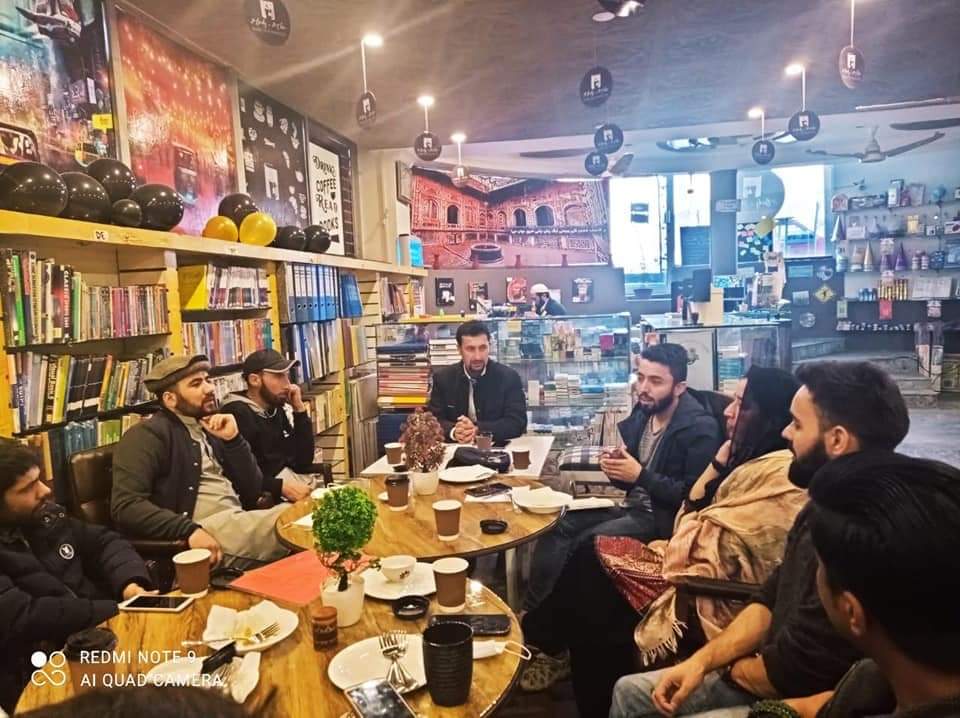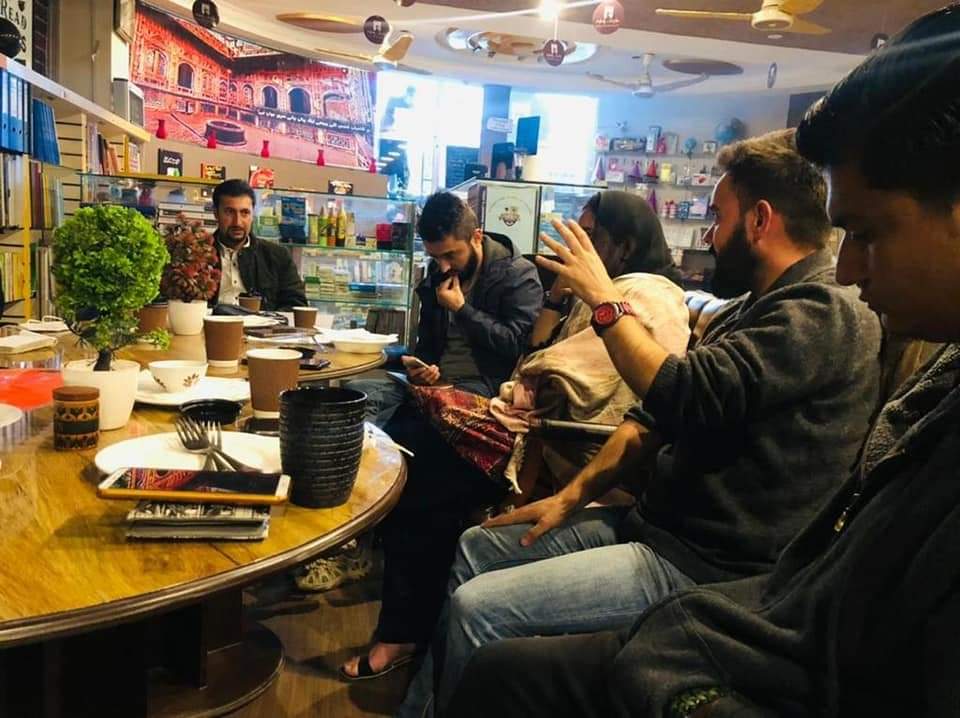In the serene ambiance of Books and Chai, a cozy sanctuary for intellectual discourse, the Intellectuals Forum convened for a thought-provoking session on the complex phenomenon of radicalization in Pakistani politics. Karim Ullah, a seasoned political analyst renowned for his incisive insights, led the discussion, shedding light on the underlying dynamics and implications of radical ideologies in the country’s political landscape.
Radicalization in Pakistani politics is a multifaceted phenomenon, influenced by a confluence of historical, social, economic, and geopolitical factors. As Karim Ullah adeptly articulated, radical ideologies often exploit grievances, real or perceived, to mobilize support and challenge existing power structures. Whether rooted in religious extremism, ethnonationalism, or socioeconomic disparities, radicalization poses significant challenges to democratic governance, social cohesion, and peacebuilding efforts.

Throughout the session, Karim Ullah delved into the historical roots of radicalization in Pakistani politics, tracing its evolution from colonial-era movements to contemporary manifestations. He highlighted the role of political parties, religious institutions, and external actors in shaping the discourse and trajectory of radical ideologies, as well as the impact of geopolitical dynamics, such as the war on terror and regional conflicts, on Pakistan’s internal stability.
Moreover, Karim Ullah explored the consequences of radicalization for Pakistan’s democratic institutions, human rights, and socio-political fabric. He underscored the importance of countering radical narratives through inclusive governance, economic development, and civic engagement, while also addressing underlying grievances and inequalities that fuel radicalization.

The audience, comprising scholars, activists, and concerned citizens, actively participated in the dialogue, posing probing questions and offering diverse perspectives on the issue. From discussions on the role of education in countering extremism to reflections on the challenges of navigating identity politics in a pluralistic society, the session brimmed with intellectual vitality and introspection.
At Books and Chai, amidst the aroma of freshly brewed tea and the sight of shelves adorned with literary treasures, minds converged to confront the complex realities of radicalization in Pakistani politics. Karim Ullah’s nuanced analysis served as a catalyst for critical reflection and dialogue, inspiring attendees to grapple with the complexities of extremism and seek pathways to peace and reconciliation.

As the session drew to a close, the Intellectuals Forum departed with a renewed commitment to fostering informed discourse, promoting democratic values, and confronting radical ideologies with courage and resilience. Inspired by Karim Ullah’s insights and guidance, they pledged to continue their quest for a more just, inclusive, and peaceful future for Pakistan and its people.



